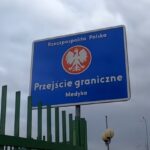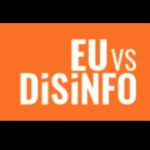Is this the European Union that we have dreamt of? Is this the European Union that we have been tempted with? A united continent, with no borders, a continent blessed with peace and fraternity, with the well-being of its residents, blessed with the preservation of everything that singles the continent out from the rest of the world? As it is, European values transpired as the values that are not shared by the overwhelming majority of Europeans. These are same-sex marriages, gender mainstreaming, extirpation of all traditional values and mass immigration that increasingly changes the racial make-up of the European population and – what necessarily follows – the continent’s culture.
Up to very recently it was the Western part of Europe – the so-called old Union – that was subjected to the programmed and systematic influx of peoples from the Third World. The new members of the union – especially Poland, Czechia, Slovakia, Hungary – resisted the policy of mass immigration, running afoul of the Brussels’ commissioners and ruffling a few feathers among Western intellectuals. The year 2015 – that notorious year during which Germany is believed to have accepted between 800.000 and 1,200.000 arrivals – made the blood of Eastern Europeans run cold. They wanted to mingle with the French, the British, the Italians or the Germans, but were totally unprepared to regard the Afghanis or Somalis as new Europeans! The cultural, religious, mental gap was far too large to be bridged as was the pace with which those ethnic changes were effected! It did not go unnoticed either that Third World immigrants were clearly used as a weapon: a look at Turkey’s policy said it all. Also, the acceptance of tens of thousands of Third World immigrants was perceived by both Western and Eastern Europeans as mere virtue signalling and – in the case of the new member-states – as a sign of their submission the Brussels (Paris and Berlin). Add to this the indiscriminate procedure of letting foreigners into European countries: there was no way of screening the masses of arrivals whether they contained common criminals, mafiosi, terrorists and the like. Continue reading














